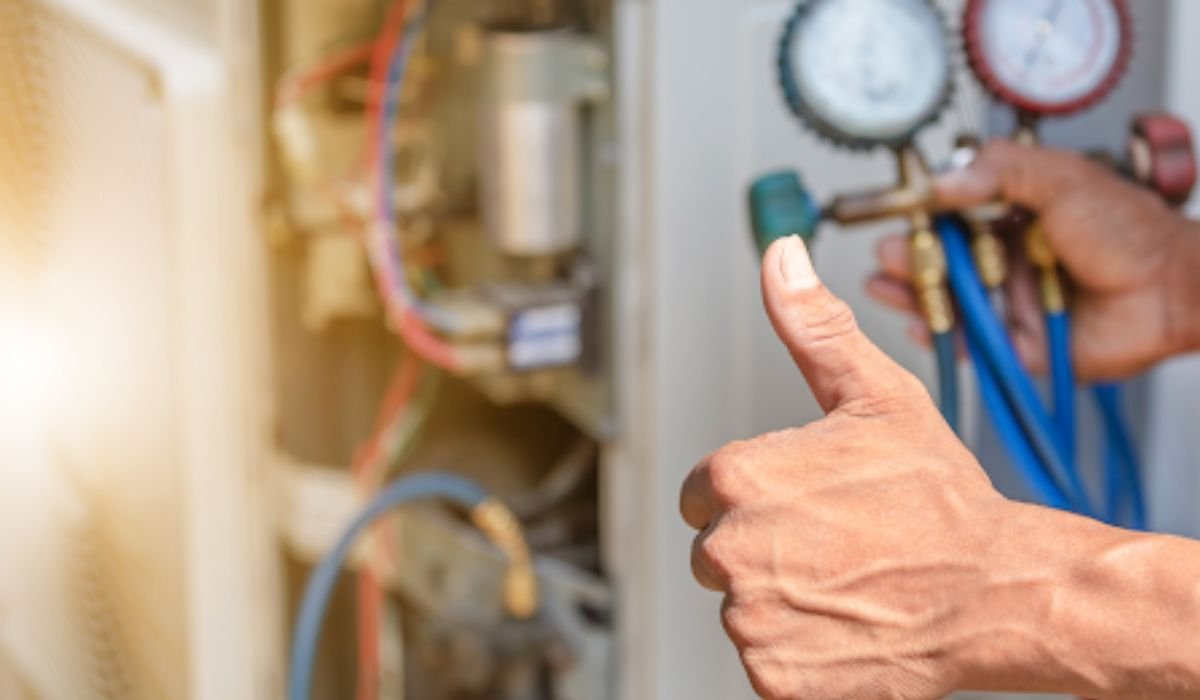An unchecked HVAC system can quickly turn comfort into chaos in a heated Texas summer. Older systems usually struggle to cool the house themselves. Some have safety concerns associated with them, as well. With a few simple steps, you can easily avoid these problems and protect your home and family. In this article, The Chill Brothers expert shares some HVAC safety tips before the start of summer.
If you take safety measures before summer, you are ensuring smoother performance and stronger safety. Taking such steps prevents breakdowns, protects your health, reduces risks, and improves comfort. Practicing these steps early in the season makes summer stress-free and energy-efficient.
8 HVAC Safety Tips for Homeowners Before Summer
Your A/C unit may struggle to handle the higher temperatures and humidity without proper maintenance, resulting in uncomfortable living conditions and increased utility costs. Before summer arrives, ensure your air conditioner is prepared to withstand the heat by following these five steps:
1. Check for Pests
It’s crucial to inspect your HVAC system for any bugs that might have moved in before summer arrives. If they can get inside, pests like insects, rats, and other tiny animals can seriously harm your air conditioning system. It is recommended to start by inspecting your HVAC system’s outside unit to make sure there are no obvious bug infestations.
Get in touch with a professional pest control provider to take care of the problem if you see any activity or nests close to the unit. Following the removal of the pests, you should check the inside of your air conditioner to make sure none of them entered.
2. Upgrade Your Thermostat
If you haven’t already, switching to a smart thermostat could help your HVAC systems last longer. You should know that your annual energy savings estimation can be as low as 12% or as high as 20%.
This is why you should choose a certified thermostat, and consulting an HVAC professional about how to schedule cooling periods that coordinate with your daily schedule is your best option. In certain locations, you could also benefit from lower electricity costs during off-peak hours.
3. De-Clutter and Eliminate Obstructions
This is more about clearing the HVAC system airflow obstructions, both inside and outside your house, than it is about hints about clutter. First, if furniture or other home objects block air vents, ventilation into that room or area may be limited. In order to raise the air temperature to the setting on your thermostat, your air conditioner will need to operate longer.
4. Get an HVAC Tune-Up
An HVAC tune-up every two years can serve as a preventative measure against potential issues. Even though anything can happen while a system is operating at high levels during severe weather, having your furnace, air conditioner, and other HVAC parts serviced before maintenance workers are overworked during the sweltering summer months will help you avoid future expensive problems.
Additionally, it offers a status check to see how your system is operating right now. Additionally, yearly maintenance may help maintain the effectiveness of your priceless manufacturer’s warranty, which protects you if a crucial component fails while the warranty is in existence.
5. Keep Fire Safety in Mind
You should try to avoid keeping dangerous objects close to your HVAC systems to reduce the risk of a fire. For added safety, keep a fire extinguisher close at hand and clean your furnace and heating parts on a regular basis.
Such measures should not be taken lightly, as avoiding them could turn out to be life-hazardous for you and your family.
6. Clean or Replace Filters
Making sure the filters are in good shape is one of the most crucial things you can do for your air conditioner before summer arrives. Both efficiency and safety depend on this. Dust, debris, and other material won’t clog the unit and obstruct the airflow if the filters are cleaned or replaced. Your system will operate less efficiently if you don’t clean or change your HVAC filters regularly, since they will eventually get clogged with dust and debris.
During the spring and summer, it is best to check your filters once a month and replace them if needed.
7. Be Prepared
It’s critical to know when you should turn off your HVAC system in an emergency. Make an emergency evacuation plan for your family and keep the contact details for HVAC specialists like Climate Care close at hand.
Making HVAC safety a top priority as a homeowner is a proactive way to guarantee the system’s longevity and effectiveness. In addition to safeguarding your investment, by heeding these suggestions, you and your family can live in a safer and healthier house.
Sometimes, even the most seasoned do-it-yourselfers require expert assistance. We are pleased to assist you if you are unclear on how to begin your HVAC maintenance. Reach out to The Chill Brothers for more information on HVAC emergencies.
8. Consider a High-Efficiency AC Upgrade
Instead of waiting for just one more summer, it may be preferable to replace your HVAC system with a new, high-efficiency system before summer arrives if it is nearing the end of its useful life. Even though it has always been true, it is truer now than it has ever been.
Conclusion
Making HVAC safety a priority ensures comfort, efficiency, and peace of mind during summer. For expert maintenance, reliable service, and high-efficiency upgrades, trust The Chill Brothers to keep your system running safely and smoothly when the heat arrives.
YOU MAY ALSO LIKE: Get the Best Value on HVAC Upgrades in Dallas-Fort Worth with GLA

